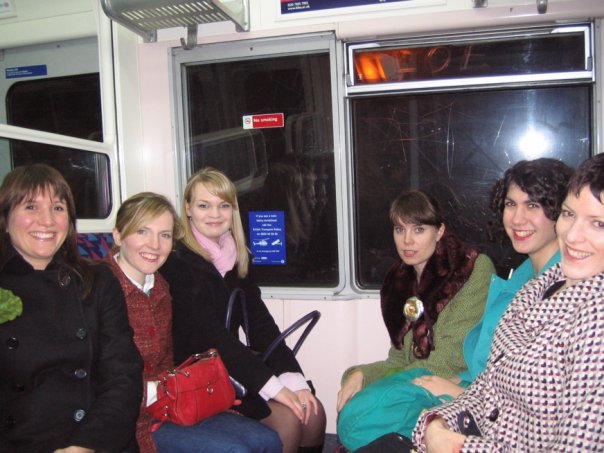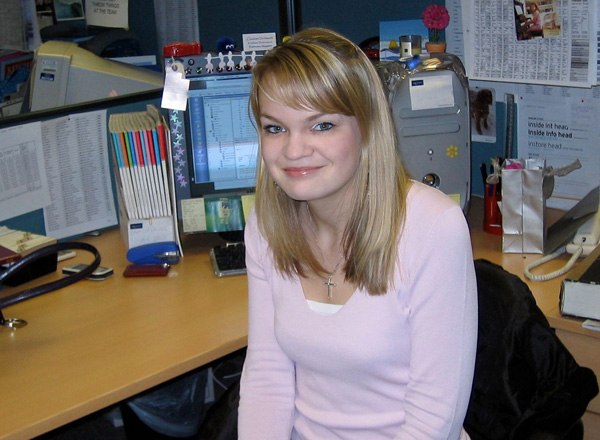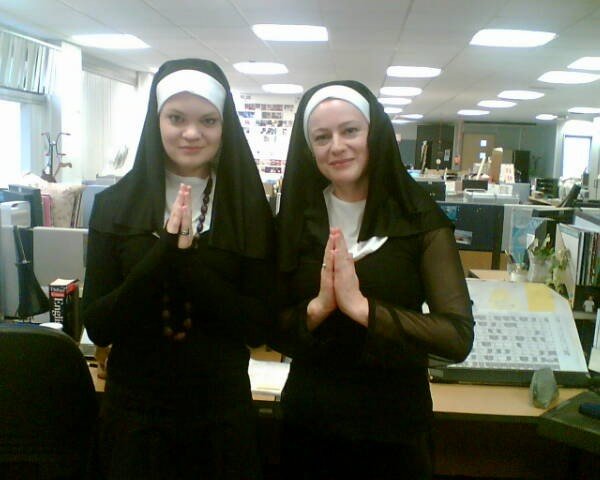Becoming a magazine journalist
I get lots of emails asking for advice, from people hoping to pursue a career in journalism, so I thought it would be helpful to write a post with my thoughts. Unfortunately and fortunately, like most journalists, I’m really busy and struggle to keep on top of my emails, so sadly I don’t have time to respond to everyone personally.
First off, a caveat to the advice I’m about to give: I’m lucky, because I graduated ten years ago and I think things were much easier then. Online journalism was still very much in its infancy, the recession was a long way off, and magazines were booming, especially in my sector: interiors. There were god knows (well, the ABC probably does) how many more interiors magazines on the shelves in 2002 than there are in 2012. But it was a lot more.
Also! I’m not claiming to be an expert. I have no experience in training journalists – this is really just based on my personal experience over the years.

So how did I get into it?
I studied Classics at uni, which was very interesting but not much help when it came to getting a job after. Thankfully, for fun while I was at uni, I was involved with the student newspaper, Leeds Student, and I had written and published a fair few arts reviews for them. So I did have some cuttings. If you want to be a journalist, get involved with your student paper! Obvious but fundamental.
I went to speak to my careers advisor in my final year, and said I wanted to write books for a living. He told me to become a journalist, saying it was more realistic (sadly I have yet to prove him wrong on this). But I didn’t have any journalism contacts, or any idea how to get into the industry. He pointed me in the direction of postgraduate training.
I was really reluctant to take on any more studies, but realised it was that, or doing a year of unpaid work experience and hoping for a job to come up somewhere I’d been making tea and photocopying. This does happen, but it’s a long and expensive route, with very slim chances. I would say only 5% of interns I’ve ever worked with managed to land a permanent job as a result of interning.
So, I found the shortest, most specialist postgrad course I could, which started a week after leaving university and ran throughout the summer. I applied, had a scary interview in London during my final Easter holiday, and got a place! Hurrah.
The course was a Postgraduate Diploma in Magazine Journalism, at PMA Training, a small but specialist journalism training college. It was fantastic fun – but best of all, they really try hard to get you a job once you finish. It’s also a great course because it’s only 9 weeks, so you don’t have to spend another year training and racking up more debt.
Through the course I got my first job. The course director was doing some consultancy for the company and put me forward for a vacancy that had arisen. I finished the course on the Friday and started the job on the Monday, meaning I actually never had to do any work experience or interning after I finished studying, which was amazing. (And, I now know, very lucky.)
During the course, I did two weeks’ work experience at WENN. This was enough to persuade me I didn’t want to work in celebrity journalism. Fair play to those who do it, but it isn’t my cup of tea. Mostly because I spent two days locked in a dark AV room, transcribing a secretly filmed video of Jordan and her then-boyfriend on a fairground ride, trying to work out what they were saying to each other. Hmm.
Anyway, my first proper, full-time job wasn’t glamorous or fun. It wasn’t even journalism really – I was the ‘sub-editor’ for a big UK holiday company, editing all the marketing text for their brochures. Yep, eight months of writing about sea views and all-inclusive restaurant choices. It wasn’t great. But the people were lovely. And it was a job. And best of all, it helped land me my dream job…
My first proper, bonafide magazine job was as the sub-editor on Kitchens, Bedrooms and Bathrooms, a small consumer magazine about, er, kitchens, bedrooms and bathrooms. I still look back on it as possibly my most favourite job ever. I loved it there, and the people were fab and they are all still my friends (and, in different ways, colleagues – I’ve worked with every single one of them in another capacity since) today. How did I get this job? It was advertised in the Guardian. Not even on the website, since these were dinosaur days, but in the actual Media Guardian supplement (Mondays).
I still have the cut out of the ad… *goes misty eyed*. I applied, had two interviews and a subbing test, and got the job. God knows how as I was quite rough around the edges, but thank you to my dear ex editor, for taking a chance on me. I learnt so much at KBB, a lot of which I attribute to the fact it’s quite a small magazine, so I got to muck in and try lots of different things. Small magazines are a great place to start out.

And the rest is history. Literally. So I’ll shut up now. I’m feeling old. If you’re interested in how my career progressed after that, check out my Linkedin page.
So my top tips are:
• Be 100% sure you can write. Seriously. Please. If you can’t, then you shouldn’t want to be a journalist. Be honest with yourself. • On that note, spellcheck and proofread your CV/covering letters to within an inch of their lives. Get someone else to do this – it’s nigh-on impossible to proofread your own work (prize to anyone who can spot a mistake in this – there’s bound to be at least one!). • Be aware that journalism is tough. You work hard, you don’t get paid very much when you start out, and there is a lot of competition. You have to be determined and persistent. It’s brilliant too of course, but tough! • Participate in any student publishing endeavours that come your way. Network, network, network, even at uni. Meet likeminded folk. Journalism is a relatively small industry and it’s all about contacts. • Do a postgrad course. Look for one that’s accredited by the PTC. I really do think having a postgrad gives you the edge – not least because you often then hear about job opportunities that aren’t advertised. • Make sure you are computer savvy. Get a Mac. Beg, borrow or steal (ahem, not really) Indesign and Photoshop and learn how to use them. Learn basic HTML. Mess around on WordPress, Tumblr, all the other web publishing platforms. Be interested. • Actually, be interested and curious in everything. If you’re not, you don’t really want to be a journalist. Journalists are nosey. • Interning is worth it, but only if you make the most of the opportunity. Be polite, humble, approachable, helpful and friendly – even if what you’re being asked to do is like, totally beneath you. I can’t believe some of the attitudes of the interns I’ve worked with over the last few years. I would never have given any of them a job. Everyone has to start at the bottom, and it was me doing that work a few years ago. No one is too good to check the stockists page! • If you do get the chance to socialise with magazine staff while you’re interning, go for it. Journalism is a sociable industry and it’s great to build relationships and keep in touch with as many people as possible. But don’t get ridiculously drunk and embarrass yourself. • Be nice to everyone you work with. Because you never know where your paths might cross again.

• Go the extra mile. Obvious but true. People remember the overachievers. They remember the people that bugger off at 5.30pm on the dot moaning about their boring day too, but not for good reasons. • Don’t write for free. Don’t spend months/years writing for really obscure online publications that no one’s heard of. Or for other people’s blogs. Not unless you really really, really think it’s worth it. It’s a bit controversial, but I think your time would be better spent writing your own beautifully designed blog and building it into something really fantastic you can show off on your CV. • Recruiting editors will often, if not always, web-stalk their applicants. Be careful about what’s out there about you. • Be confident. Hard if naturally you’re not, I know. But it’s tough to be a successful journalist if you’re shy and retiring. I once interviewed someone who shook the whole way through the interview – she might have been a great writer, but she made me feel so uncomfortable, and I knew I wouldn’t be able to send her off to interview a designer or a homeowner. • Are you a grammar geek? Can you spot a dangling modifier at fifty paces? Consider subbing. It’s a great route into journalism and actually offers a lot of opportunities for freelancing once you’ve got some experience under your belt. • Either use Twitter well, or don’t use it at all. It’s great for networking, but don’t bombard journalists or magazines you want to work for with pleas for commissions. I’d use it more subtly, to glean information about what editors and writers are up to, what they’re working on etc, and then think about how you can help them (not the other way around). Follow all the major publishing houses as they all have job feeds listing their latest vacancies.

• Pick a subject matter/sector to focus on. It’s tricky when you start out but having a passion for a subject matter, and being able to demonstrate that passion, really makes a difference when you go for a job interview. I reckon I only got the KBB job because I love homes and I was genuinely dying to get it, and I think the editor could see this from my interview. Around the same time I also had an interview for an editorial assistant’s job on a big travel trade magazine – I was offered it, but only after the initial person they offered it to turned it down, and now I look back I think they could tell I wasn’t really gagging to write about airlines. • Do your research. Target the magazines you love and email the editors you want to work for, explaining why you love their title and are dying to write for them/freelance for them/get a permanent job with them. Those emails do get read, and they do get passed around. If someone demonstrates a genuine interest in and knowledge of a magazine/website, and has the talent to back it up, they’re very attractive to editors. • Don’t forget online publishing. It’s the future. I left subbing and joined the online world, and although I do still work for print titles too, the majority of my work these days comes from websites. It’s just as glamorous. I promise. • Last but not least – subscribe to the Gorkana job alert. If you don’t know what it is, find out! Now! What are you waiting for?
